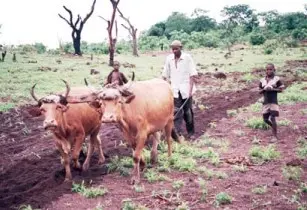Africa’s agriculture sector could be argued to be failing but with technology, education and funding there’s a way back and the UN Climate talks could help this
“Food production” featured just three times in the Paris climate agreement text. Often, renewable energy or new motoring technology overshadows farming and food security as climate issues. Led by Morocco, that will change if a coalition of 27 African states has its way. The “triple A” alliance – short for Adaptation of African Agriculture – says it will embed farming communities at the centre of negotiations at the upcoming UN summit in Marrakech.
“This could be a game changer for African people,” said president of Morocco’s General Council of Agricultural Development, Mohamed Ait Kadi, head of one of the government-linked think tank. “There is a general consensus that our countries are already affected by the impacts of climate change. African farmlands and ranges are increasingly degraded and face declining yields.”
A meeting in Morocco in July comprised of 60 experts including officials from the UN Food and Agriculture Organisation concluded by discussing that soil and water management across Africa was at crisis point. With rising global temperatures and erratic rainfalls, this could lead to a 20 per cent slump in crop production by 2050, the meeting said in a paper in September 2016.
“The issue of funding is crucial. A recent UNEP study (2010) indicates that the economic cost of climate change in Africa could account for 1.5 to 3 per cent of GDP, every year, until 2030.
“Additionally, an ADB 1 study evaluated the adaptation costs in Africa at about 20 to US$30bn per year over the same period. Current flows remain insufficient to meet the real needs of Africa, especially in agriculture and adaptation.”
The Green Climate Fund, UN Adaptation Fund and African Development Bank are among organisations known to be piloting agriculture adaptation initiatives, but at this current time, have had a limited impact.





